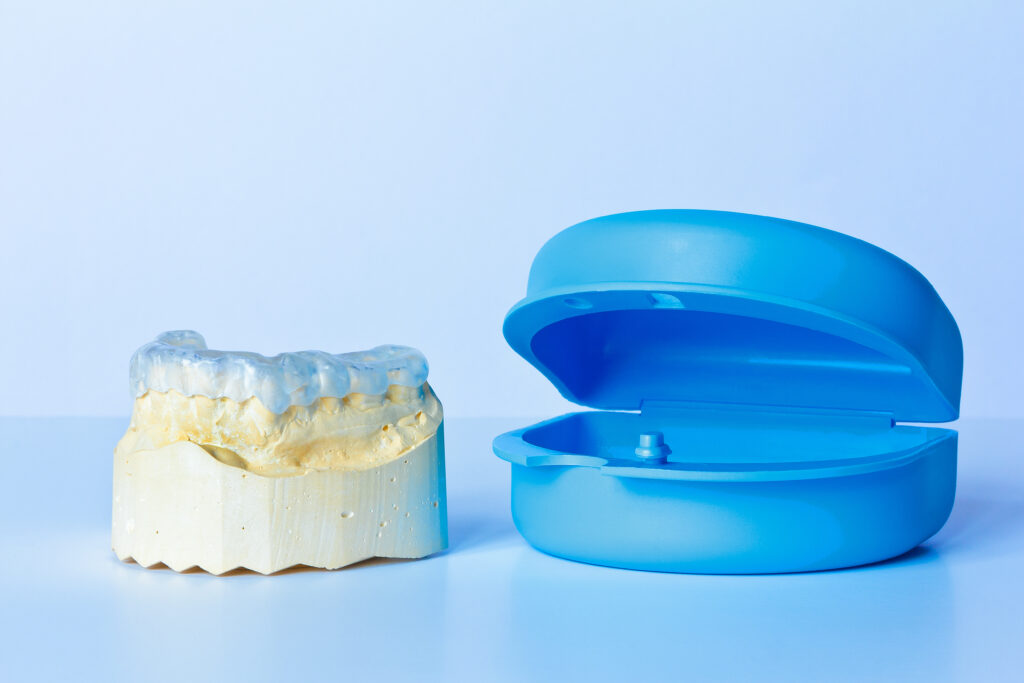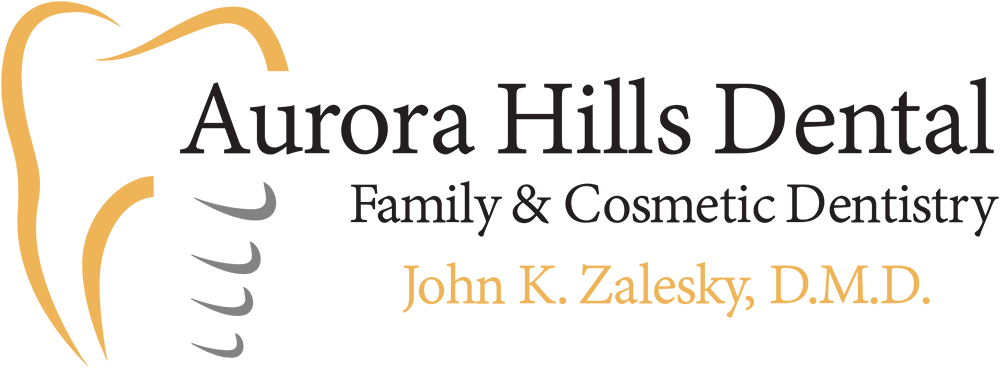Nightguards
 When you think about the kinds of damage that can happen to your teeth, you probably think about things that occur while you’re awake like snacking on sugary foods, chewing on ice or pen caps, or chipping your tooth on a drinking glass.
When you think about the kinds of damage that can happen to your teeth, you probably think about things that occur while you’re awake like snacking on sugary foods, chewing on ice or pen caps, or chipping your tooth on a drinking glass.
However, many people aren’t aware that issues can affect your teeth while you sleep, such as sleep bruxism.
What Is Sleep Bruxism?
Sleep bruxism is a condition characterized by the frequent clenching of the jaw and grinding of the teeth during sleep.
Individuals with sleep bruxism put more wear and tear on their teeth each day than those without the condition. It can not only damage teeth but also lead to a variety of painful musculoskeletal symptoms.
What Causes Sleep Bruxism?
The exact cause of sleep bruxism is not known. However, it has been associated with daytime stress and anxiety. People with sleep bruxism tend to clench and grind more during sleep when they are experiencing stress in their waking lives.
Sleep bruxism is also associated with alcohol consumption, sleep apnea, misaligned jaw, malocclusion, and temporomandibular joint disorder (TMJ). It also has a hereditary component, as sleep bruxism tends to run in families.
Signs and Symptoms: How To Tell If You Have Sleep Bruxism
Sleep bruxism happens while you’re asleep, so many people don’t even realize that they have it. There are, however, some telltale signs and symptoms of bruxism that can indicate you have the condition. These include:
- Teeth sensitivity
- Stiffness in the jaw
- Pain in the jaw, neck, or face
- Ear pain
- Frequent headaches
- Depressions in your tongue or cheeks
- Chipped or cracked teeth
- Worn enamel
During a routine dental examination, our dentist can usually recognize wear patterns on your enamel typical of sleep bruxism — even if you are not aware that you have sleep bruxism.
Protect Your Teeth While You Sleep With a Nightguard
In addition to taking steps to reduce daytime anxiety or to correct a misaligned bite or malocclusion, the simplest and most common treatment for sleep bruxism is a nightguard.
What Is a Nightguard?
Also commonly called a mouthguard or a bite guard, a nightguard is a plastic oral device that is formed to fit over your teeth and protect them from the impact, friction, and pressure of teeth grinding and jaw clenching while you sleep.
Nightguards are typically custom-made to fit you comfortably and, based on your wear patterns and bite, address the specific type of sleep bruxism you have.
Although a nightguard does not address the underlying cause of sleep bruxism, stopping the pattern of clenching your jaw and grinding your teeth during sleep, it does protect your teeth from the damage that sleep bruxism inflicts.
Nightguards and More – Preventive Dentistry at Aurora Hills Dental
If you suspect you have sleep bruxism as a result of experiencing painful symptoms (especially upon waking), we strongly encourage you to schedule a sleep bruxism evaluation with Dr. Zalesky at Aurora Hills Dental. He can examine your teeth, talk with you about your symptoms, and help you determine whether a nightguard is the right treatment for you.
To learn more or schedule an appointment, we welcome you to contact our office today.




